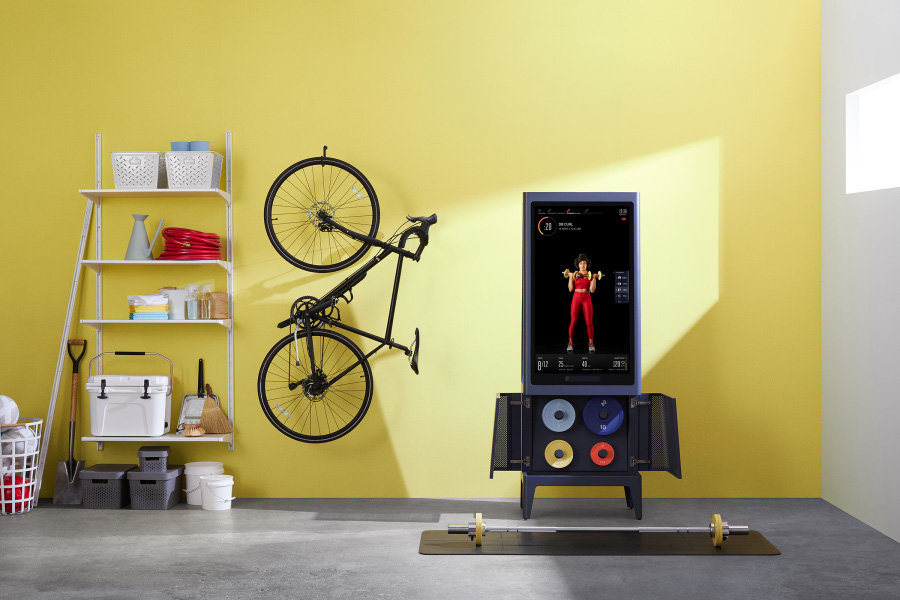Beyond Peloton, Tonal, Mirror: What’s new in home fitness brands?
Stay-at-home orders are keeping people away from the gym, leading to a surge in home fitness equipment sales.

Tempo - An AI-powered home gym
Brand roundup
Fitness studios may currently be closed, but that doesn’t mean people have stopped working out. In March, Yoga With Adriene’s YouTube channel gained 500,000 new subscribers, Strava’s app usage tripled, and online sales of weight training equipment were up 307% year-on-year.
The home workout market is booming, and a cluster of young, high-tech fitness brands are reaping the rewards. Sales of Tonal’s high-tech strength system, which uses electromagnetic weights and provides training via a wall-mounted screen, rose 200% in the first week of March, and the company says users are now clocking in an average of 16 workouts a month. Its competitors in the connected fitness space, Peloton and Mirror (a full-length screen that streams workout classes and checks your form), have also seen a similar uptick in sales.
Unlike other product categories like suitcases, mattresses and razor blades, new brands in the at-home fitness space are putting as much emphasis on product innovation as branding. These are companies that want to solve the problems consumers experience with traditional dumbbells and spinning bikes – which are bulky, noisy, and eventually gather dust – by using sleek design and regularly updated, streamable content.
“We know that the two biggest barriers to strength training for an at-home product are space – the equipment is quite bulky – and knowledge. People don’t know how to strength train,” Christopher Stadler, Tonal’s chief marketing officer says. “Tonal solves those two problems through virtual personal training and through a piece of equipment that is quite sleek and fits comfortably into your home.”
By combining equipment and content, the consumer experience “can be consistently improved [upon],” says Richard Kestenbaum, partner at consumer sector focussed financial advisory firm Triangle Capital. “Which means it can never get boring.”
So where does that leave consumers looking for more cost-effective home fitness gadgets (not only does a Peloton bike cost $2,245, it’s an additional $39 per month to keep streaming new classes)? Tonal says that while sales have surged during COVID-19, its customer profile has remained roughly the same. In other words, it’s still preaching to an affluent crowd.
“I do think the market has become exponentially bigger because of COVID, and there are people looking for at-home fitness solutions that weren’t ever doing that before,” Christopher agrees. Currently, this end of the market is led by legacy brands like Technogym and retailers such as Amazon and Target – but it seems inevitable that a Glossier-of-home-fitness will someday take over our Instagram feeds.